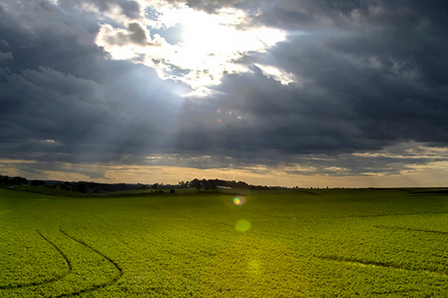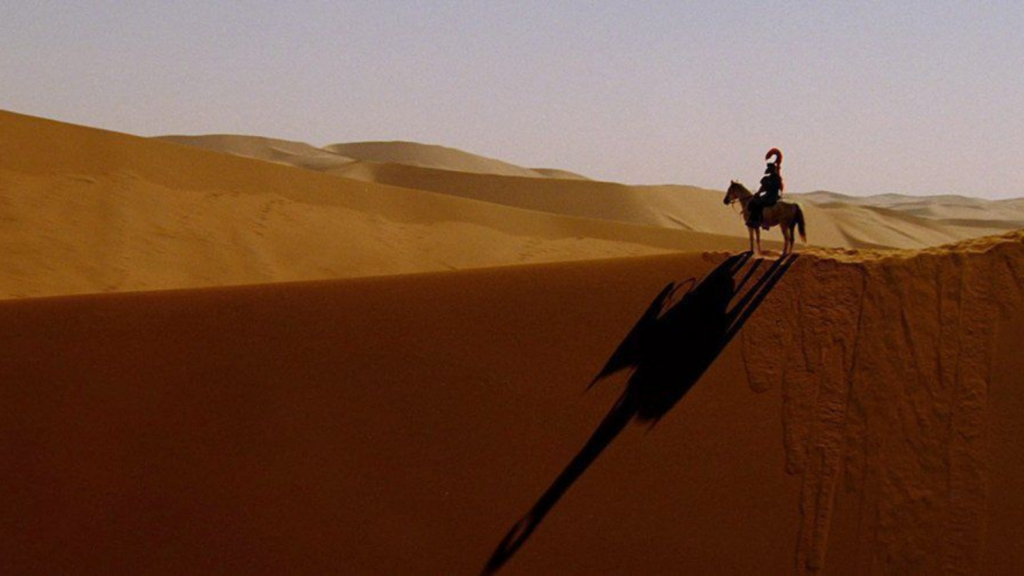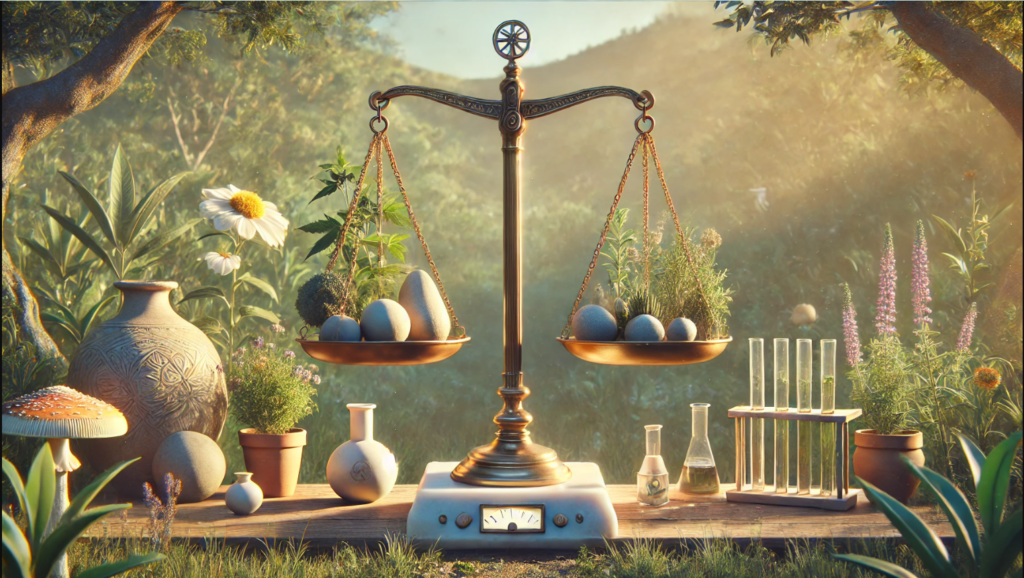I was at the local 'feed and seed' store the other day to get supplies, and struck up a conversation with the owner. He is a calm, thoughtful, conservative rural Virginian. He was talking about the weather, about how things have changed. They used to say that when the bumble bees came out, the last frost had passed. "The signs don't mean anything anymore," he was telling me.
Some scientists believe that climate change is triggering more extreme temperature oscillations as the jet stream weakens and wobbles as a result accelerated warming in the arctic regions.[1] I don't think my friend at the 'feed and seed' knows that. He does know what I know, that the temperatures at our farm shot up above 85 degree and then went below freezing four times in succession this spring. Even the native plants, ever so well-tuned to local seasons, were damaged. Our non-native food producing plants suffered worse.
The knowledge that we are facing unprecedented ecological change has permeated even into the conservative heartland. I have conservative friends who recycle obsessively, and others who brag about the ecological nature of their farming practices. It seems we all know something is up, but we just don't know what to do about it. It is extraordinary that we can so effectively study, catalog, and scrutinize our collective demise even while we are seemingly paralyzed to actually do anything about it. How could we know so much, and yet know so little?
Before one writes off humanity as genetically incapable of planning for the future, one would do well to recognize that there have been many non-industrial peoples studied by anthropologists who have lived in harmony with their local environments for thousands of years. Jared Diamond has commented on this subject by noting that “we are only beginning to realize how sophisticated the conservationist policies of so-called primitive peoples actually are. For instance, well intentioned foreign experts have made deserts out of large areas of Africa. In those same areas, local herders had thrived for uncounted millennia by making annual nomadic migrations, which ensured that land never became overgrazed.”[2] “[S]mall, long established, egalitarian societies tend to evolve conservationist practices, because they've had plenty of time to get to know their local environment and to perceive their own self-interest.[3]
Though not all indigenous peoples are ecological saints, the evidence is clear that mass ecological suicide is not in our genes. At least some cultures have gotten it right. Seeing such evidence leads to some profound soul-searching. Why us? Why now? Why are destroying the environment with such reckless abandon? And more importantly, what can we do about it?
I have long believed that looking at human beings in cross-cultural perspective is by far the most effective way to understand our capacity for a diversity of behaviors. We tend to exert most of our time and attention to the politics of here and now. When you broaden your view, new patterns start to emerge.
There exists in all human societies a powerful relationship between ecology, economy, and culture. I have traveled around the United States conducting public presentations about ecological problems and solutions. To show the relationship between ecology and politics, I will often put up a picture of Dagon, a deity worshiped by ancient peoples in the area we now call Lebanon.
Dagon has the body of a fish, and human arms and legs. I ask my audience a question with a rather obvious answer. Where did the worshipers of Dagon live, and what did they do to earn their keep? They lived near the sea, and they caught fish, someone always answers with a chuckle. One could show images of ancient deities from central America that incorporate ears of corn into the body of the deity, those being societies whose economies were based on corn. The lesson is simple. Where you live leads to some logical choices about how to get food, and that in turn has a powerful impact on political culture and ultimately religious symbolism.
Such simple correlations are easy to see, but the salient question is why do we not see ourselves in the same way? We tend to see our technology as a triumph over nature. We see the rise of democracy, the expansion of civil liberties of traditionally disenfranchised groups, resulting form political, intellectual, and academic struggles. Intellectual leaders create new ideas, revolutionary leaders carry them forward. We argue for improved rights for ourselves, for traditionally disempowered groups, and hope to expand those liberties in the future.
The fact that we create our own culture through our ideas and politics is very much like the flat Earth theory. Generally when you look around, notwithstanding a certain local lumpiness, the Earth is clearly, obviously, flat. Except it isn't. To understand the Earth is round, you have to take wider view. The same is true of human culture.
The broader view of human culture is that ecology sets the stage for economy, and economy in turn dominates the evolution of academic, political, and religious institutions. If this is so, then why is it not common knowledge?
All human cultures evolve in response to ecological change, but we do not want to see ourselves that way because it is too humiliating. In our highly stratified society, political, religious, economic, and academic leaders each try to project an image of themselves as agents of historical change. Politicians, preaches, academics — anyone who takes to the stage — tries to convince their audience that they as leaders are agents of historical change.
Back in the old days, political leaders used to proclaim themselves living gods. The Sun Gods and the Caesars made claims that only they could make the sun shine and the rain fall. And now the academics claim to lead the development of technology, mechanical and social. The politicians try to claim credit for prosperity. The preachers claim to give moral direction.
What they all have in common, regardless of whether they are leftist, rightists, or whatever, is the claim of agency. All of our leaders have for thousands of years now made exaggerated claims of their influence over the course of human affairs while studiously ignoring the copious evidence of the links between ecology, economy, and culture. Such is a bigger-picture parallel of the attempt by religious leaders to deny Darwin's evolution. In each case, grand claims of false agency serve make leaders look more important and thus consolidate power. Except in the case of denying the ecological roots of human culture, the conspiracy to claim agency and hide from the truth has equally permeated across the political spectrum. Leftist and rightist alike try to claim agency in denial of ecology.
Our history, and our future, stand before us, hidden in plain sight. In the social realm, we know what we choose to know, and we do not know what we choose to not know. We do not understand the ecological and economic foundations of democracy, past, present, or future. We do not understand why men dominate men all over the world. We do not understand our own collective ecological blindness because we have chosen not to.
The price of our purposeful unawareness could not be higher. As much as I respect my fellow activists, we have to confess that we are losing the battle to protect the global environment rather badly. Industrialism has allowed us to ignore local ecological limitations by moving resources around on an unprecedented scale.
We cannot ignore that the Earth itself is finite. Climate change is one big limit that cannot be overcome by the power of steel and diesel to move resources from one denuded place to another. Climate change is planetary scale ecological limit, but it also ultimately a symptom of the disease. What is that disease? Non-conscious human cultural evolution. As an organizer, you cannot stand on a podium at a rally and utter that phrase and expect to be heard, but it is the real problem. As smart as we are, we have systematically ignored and suppressed cultural literacy, an understanding of our own cultural evolution.
The traditionalists call for unending economic growth, in denial of the basic physical fact that the Earth itself is finite. Environmental groups are under political pressure to sell messages that the public is willing to hear. Thus they focus on supply-side solutions, the big windmill on the hill that will save us. Renewable energy is very useful, but it cannot meet the voracious demands of modern industrial society. And what if it did? Hydrogen powered bulldozers and ethanol chainsaws would continue in denial of the the finite Earth. Until they couldn't.
The history, and future, of democracy can be outlined in one sentence. Democracy is the process by which economically empowered people express that power in the political forum. There is a democratic renaissance occurring in many nations in the world. Not just the Arab Spring, but other nations as diverse as Bangladesh and Burma (Myanmar) are seeing an expansion of power from the bottom. Economic growth supported this expansion, just as it supported the historical expansion of democracy in the industrialized nations. The coming ecological contraction is an absolute certainty. It will have powerful impacts on our economy. That in turn force a radical contraction of democracy, if we simply sit back and let history take its course.
We are capable of creating a new form of human cultural evolution. If are to have any hope of addressing the modern ecological crisis, we have to. It is time we rise up and claim the agency that has always been ours. We are in charge, and we always have been. The overwhelming message of every consolidated institution in our culture, no matter how liberal it may claim to be, is that the power of change lies in the hands of leaders — educated, privileged, and powerful. It has never been true, and will never be true.
If we can integrate the diverse localization, transition town, anti-corporate, pro-community, and pro-democracy movements, and if we can develop a cultural literacy that puts an ecological foundation under political aspirations, we could create a whole new kind of social movement. Indeed, we have to.
We are not above the Earth. We walk on the dirt, the same as we always have. Our human culture is not a purely mental game that we have created. It has roots deep in the Earth itself. We cannot solve the modern environmental crisis with new sources of energy, or more efficient means of extracting fossil fuel. The current ecological crisis is a result of blind human cultural evolution. We are capable as individuals of planning for the future. As a society, our culture evolves non-consciously. We are capable of conscious cultural evolution. Such has never been done before on a large scale. Our survival depends on it.
Born on a self-sufficient farm in rural Georgia, Alexis Zeigler is a self-taught activist, builder, mechanic, writer, and orchardist. He has organized numerous successful campaigns focusing on political, environmental, and economic localization issues. He is currently working to build Living Energy Farm (livingenergyfarm.org), a zero-fossil-fuel farm that will be economically self-sufficient. His new book Integrated Activism: Applying the Hidden Connections Between Ecology, Economics, Politics, and Social Progress has just been released by Evolver Editions.
Notes
1. http://www.wunderground.com/blog/JeffMasters/comment.html?entrynum=2432
2. Diamond, Jared, The Third Chimpanzee: The Evolution and Future of the Human Animal, New York, HarperCollins, 1992. Diamond, 1992, p.318
3. Ibid, p.335-336
Image by faeriesdragon, courtesy of Creative Commons license.













